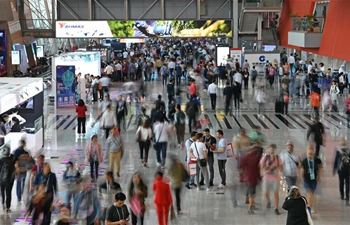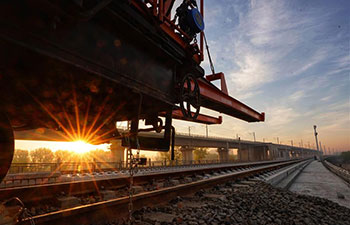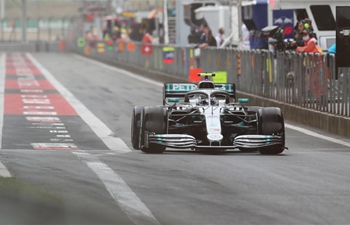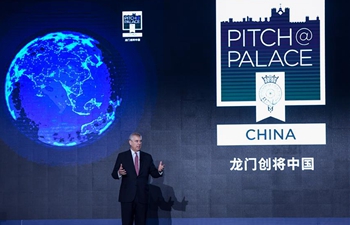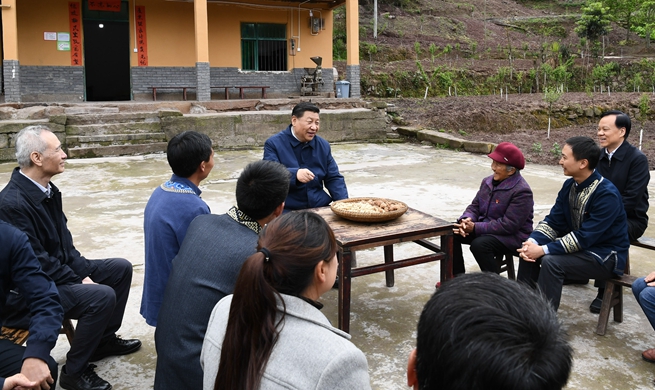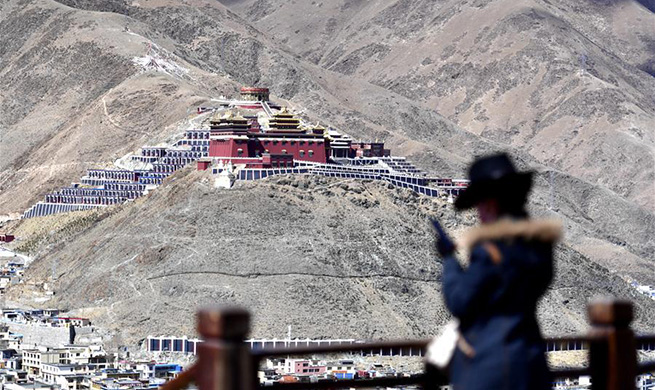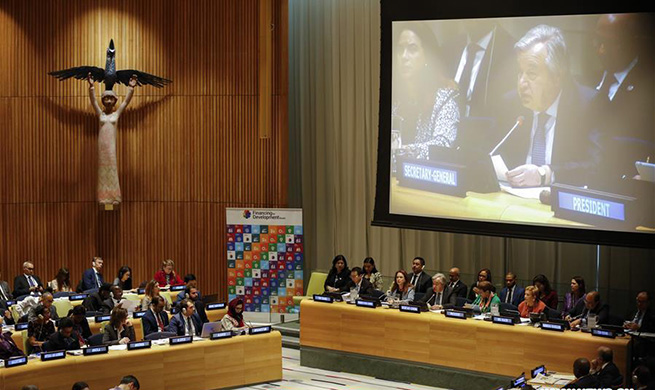LONDON, April 15 (Xinhua) -- Experiments that help astronauts tackle zero gravity on space missions are to be used on hospital patients on earth, it was announced Monday.
Patients are to be spun in a human centrifuge by researchers to help these facing long hospital stays or suffering from lower back pain, said the UK Space Agency.
The agency is supporting the research which aims to help maintain the size, quality and strength of muscles.
The research also benefits astronauts, who experience muscle loss in space, on board the International Space Station (ISS) or on future missions to the Moon and Mars.
The reduced gravity in space makes it difficult for the human body to maintain muscle mass and bone density.
Britain's Science Minister Chris Skidmore said: "By learning about how to tackle muscle wasting in astronauts who experience zero gravity in space, this pioneering research hopes to lessen the impact on future space flights, something which will be particularly important if we ever send humans on the long journey to Mars.
"It has benefits on Earth too, helping the thousands of patients who develop muscle weakness from lengthy stays in a hospital bed. We will need to embrace new technology like this to meet the needs of our ageing society," said the minister.
The new research projects at Manchester Metropolitan University and Northumbria University are being supported by the European Space Agency, the National Aeronautics and Space Administration (NASA) and the German Aerospace Centre (DLR).
The project is being led by Professor Hans Degens' team from the research center for Musculoskeletal Science and Sports Medicine.
The team will perform a series of medical tests on volunteers subjected to 60 days of bedrest, which mimics the microgravity conditions of space travel.
But some will also spend 30 minutes each day strapped into the human centrifuge, where they lay flat as it spins, simulating the force of gravity experienced when standing on Earth.
Degens said: "Artificial gravity could help astronauts to maintain muscle mass in space and help back here on Earth too by preventing severe muscle degeneration in hospitalised patients."
Currently astronauts have to exercise for up to 2.5 hours every day, take nutrient supplements, and keep high protein diets to maintain muscle mass while they are in space. Despite this, severe muscle deterioration still occurs, said the professor.
Degens said astronauts may one day have a daily quick spin in a centrifuge on the ISS rather than spend hours on gym equipment in space. For hospital patients it could greatly improve their recovery during rehabilitation and after they leave.
